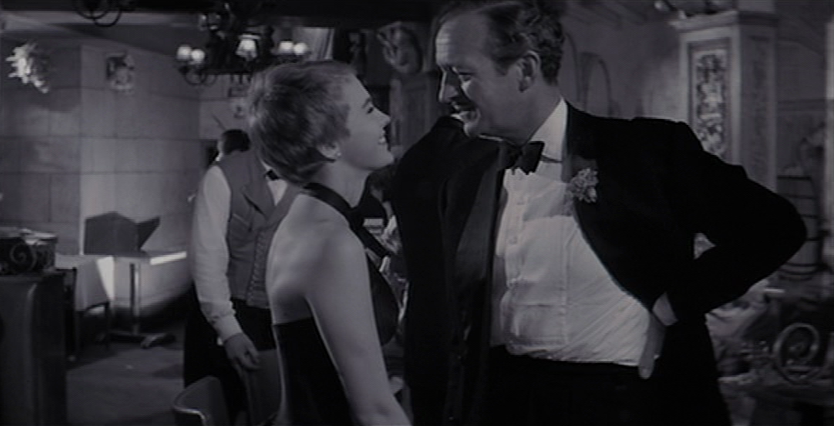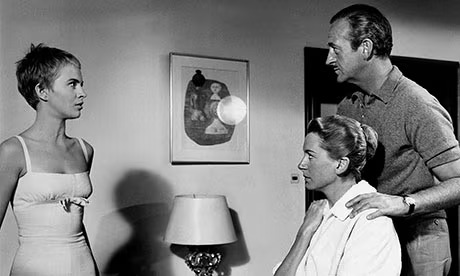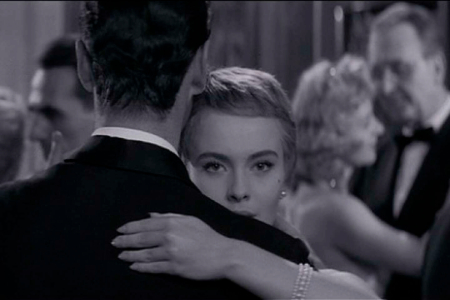Spoiled Cécile, 17, spends her summer at the French Riviera with her rich, widower, playboy dad Raymond. A usually carefree atmosphere is challenged by the arrival of Anne, Cécile’s late mom’s friend, visits and brings changes to all.
Otto Preminger’s Bonjour Tristesse is a film that stays with you after the credits roll, like the melancholy that is part of its structure. Set against the lovely backdrop of the French Riviera, the film offers grand vistas and lots of visual treat, as many of Preminger’s works tend to be. Beyond the beauty of its setting, however, Bonjour Tristesse is subtle in its storytelling, where the deeper meaning of the film lies in its quiet moments.
I first saw this film at TIFF’s Cinematheque many moons ago, and it is a film I often find myself thinking about. There is something very memorable about it, even though it does not take on ‘big themes’ per se. Instead, it offers a privileged look on youth, freedom, and the consequences of a carefree life in a manner that feels both reserved and intimate.

The film centers on the relationship between a young, happy-go-lucky girl, Cécile (Jean Seberg), and her charming but morally ambiguous father, Raymond (David Niven). Their life is one of indulgence until the arrival of Anne (Deborah Kerr), a serious woman who threatens to cut down their carefree existence. The cast works extremely well in this triad with the various dynamics that come into play. What unfolds is an exploration of the tensions between youth and maturity, freedom and responsibility, as well as, love and selfishness.
One of the things I appreciate a lot about Bonjour Tristesse is its cinematography. The French Riviera, with its vibrant cool colours, is a backdrop and a character in the film, almost mirrorring the seemingly idyllic life of Cécile and her father. Interestingly, Preminger’s use of black-and-white flashbacks remind us of the underlying sadness and regret that is part of their world. These contrasting visuals—vivid color for the present, black and white for the past—mirror the emotional landscape of the characters, which deal with that of lost innocence and the unavoidable passage of time.
Adding to the film’s atmosphere is Saul Bass’ iconic title sequence, which, paired with Juliette Gréco’s haunting rendition of the title song, also add to the tone of melancholy that flows throughout the story. Bass’ work captures Cécile’s free spirit nature and the sadness that lies beneath her carefree façade. The title song, with Gréco’s deep voice gives a lingering sense of sadness that stays with you even after the film ends.

Bonjour Tristesse may not be for everyone. Its slow pace and understated drama receive mixed reviews, which makes sense. It is not a film that overly states its themes; rather, it is quiet about them, suggesting that you sit with your emotions. For anyone who appreciates films that are as much about mood as they are about story, Preminger’s film will not disappoint.






